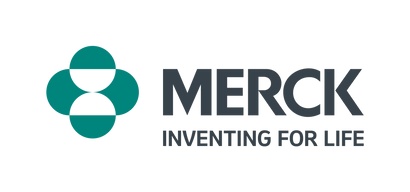State & Federal Policy Priorities
State Policy Priorities
As the statewide trade association for Pennsylvania’s life sciences community, Life Sciences PA is committed to ensuring the Commonwealth is the most attractive location in the United States to open and operate a life sciences organization.
Life Sciences PA works with its State Policy Committee and various stakeholders in our diverse life sciences community to develop a shared set of recommendations and strategies that will support and catalyze Pennsylvania’s life sciences ecosystem – from the lab bench to the patient’s bedside.
These State Policy Priorities are revisited monthly and adjustments to their level of priority are made as warranted.
Questions about our State Policy Priorities?
If you have any questions on the State Policy Priorities, please contact Kurt Imhof, Senior Vice President, Policy & Public Affairs.
Education on the Value of Innovation
Successfully healing patients or providing them an enhanced quality of life is the passion behind life sciences innovation. However, the process by which new medicines and technologies are created is time- and resource-intensive. Studies have shown it takes more than 10 years and $2 billion to move an innovative new drug through the research-and-development and clinical trial process to approval.
This process is fraught with failure as fewer than 12 percent of medicines entering clinical trials are ultimately approved by the U.S. Food and Drug Administration. This failure is one of the reasons biopharmaceutical companies need to recoup some of those costs through products that make it to the market. Recouping those dollars allows companies to pursue further basic, translational, clinical, and manufacturing research needed to turn basic science into a safe, usable, and effective therapy for patients.
In fact, the biopharmaceutical industry regularly invests more of its revenues in R&D than any other industry. As a recent Congressional Budget Office report highlights, for many years the number averaged 18-20 percent, but in recent years that number has exceeded 25 percent.
Life Sciences PA works to ensure the Pennsylvania General Assembly and the Governor’s administration understand this process and that patient access to groundbreaking therapies and cures through appropriate reimbursement in our market-based system is responsible for the Commonwealth’s leadership in life sciences innovation.
Education on the Complex Drug Pricing System
The process by which new medicines are priced is due in large part to the work outlined above; however, the cost borne by patients is the result of the complex drug pricing supply chain in the United States. While much attention is focused on the cost of prescription medicines, which account for approximately 10-14% of nationwide health care costs – a number that’s remained consistent for decades – the real issue remains out-of-pocket costs which are the result of insurance benefit design.
The price of medicines is the cause of much debate by the public and elected officials, and determining who pays for what medicines – and at what cost – is an important discussion to have. Life Sciences PA believes all actors – pharmacy benefit managers (PBMs), health insurance companies, pharmacies, healthcare providers, distributors and manufacturers – of our complex drug pricing system have a role to play in this debate. It is incumbent upon all of us to ensure that all parts of the prescription drug supply chain are acting in good faith and working to keep costs, especially those out-of-pocket costs borne by the patient, at an accessible level.
Life Sciences PA is committed to educating legislators on how insurance benefit design and various actors in the drug pricing supply chain can affect the out-of-pockets costs patients pay at the pharmacy. As noted above, the drug pricing, payment and distribution system is complex and includes many stakeholders. Life Sciences PA believe all stakeholders must be included in discussions around lowering the cost of prescription medicines and is opposed to proposals such as Prescription Drug Affordability Boards (PDAB) that focus solely on the role of biopharmaceutical manufacturers in this convoluted system.
Patient Access
Patients provide critical testimony on the effect of policy and regulations in their treatment and quality of life. Remaining focused on the voice of the patient is at the core of all innovation in the life sciences. Especially as medicines have become more individualized, the role of the patient in researching and developing new medicines has become increasingly important. Through Rare Disease Day and in working with our more than 50 patient advocacy group members, Life Sciences PA amplifies the voice of the ultimate beneficiary of our member company research and development – patients.
The novel cures and treatments being developed by our member companies mean little if the patients they are meant to serve face barriers in accessing them. Life Sciences PA is opposed to policies that inhibit patient access to medicines and technologies such as nonmedical switching and copay accumulators that undermine the physician-patient relationship. As biomarker testing continues to advance and create new pathways to diagnoses and streamlined treatment for myriad disease states, Life Sciences PA stands in support of policies that create the most inclusive access for patients.
Life Sciences PA is pleased to see policies introduced and advancing that address these access issues – non-medical switching, biomarker testing (SB 954 and HB 1754), and copay accumulators (SB 372).
Right to Repair Legislation
Medical devices, like most complex equipment, need periodic maintenance and repair. Proper servicing of these life-saving and life-sustaining devices is vital to their safe and effective functioning and the safety of patients and device users. As part of their commitment to patient safety, original equipment manufacturers (OEMs) dedicate extensive resources to establishing comprehensive servicing programs to ensure their devices are properly maintained and continue to meet safety and effectiveness requirements determined by the Food and Drug Administration (FDA).
Legislation is being adopted in states throughout the country that would allow third-party repair servicers to attempt to repair these complex devices, and no longer rely on OEMs. This legislation is known as “Right to Repair.” Giving unregulated third-party servicers unlimited access to service manuals and other proprietary OEM information would serve to put patients and device users at greater risk. Access to the latest manuals is no substitute for the extensive training, knowledge and expertise provided by the OEM. Life Sciences PA stands firmly opposed to any Right to Repair legislation in Pennsylvania that would allow third-party servicers to interfere with medical devices.
Life Sciences PA also closely monitors legislative activity in the Pennsylvania General Assembly for bills that are largely focused on consumer digital electronic equipment, but may inadvertently capture FDA-approved medical technologies in their broadly written legislative language.
Developing the Life Sciences
Pennsylvania’s life sciences ecosystem is a key driver in the Commonwealth’s economy and provides more than 100,000 direct, family-sustaining jobs to Pennsylvanians. However, the industry is largely start-up in nature. Of the more than 3,000 life sciences establishments in Pennsylvania just over 65% of those entities are made-up of ten employees are fewer. Life Sciences PA is supportive of expanding existing programs and creating new policies that play to one of the Commonwealth’s economic strengths, while also helping to catalyze the time- and resource-intensive process of researching, developing and commercializing life sciences innovations.
Life Sciences Pennsylvania was pleased to see Governor Shapiro’s administration put forth a comprehensive, ten-year economic development plan – the first in the state in nearly 20 years. This plan includes the life sciences as one of the sectors of strength for the Commonwealth’s economy and LSPA looks forward to working with its state and regional partners on enhancing Pennsylvania’s innovation economy. Life Sciences PA is specifically supportive of the below budget programs:
Pennsylvania’s Life Sciences Greenhouses
The Life Sciences Greenhouses capture the innovation potential of the life sciences industry and nurture
that potential with critical early-stage funding and sector-specific business expertise. With locations in Pittsburgh, Harrisburg and Philadelphia, citizens from every part of Pennsylvania benefit directly as new companies are formed, jobs are created, additional capital is attracted to the Commonwealth, and life-saving technologies reach patients. Life Sciences PA is supportive of the Governor’s 2024 – 2025 proposed budget to fund the Life Science Greenhouses at their annual level of $3 million.
R&D Tax Credits
The Research and Development Tax Credit Program is vital for innovation as this program rewards increased research and development year over year. A business can apply for a ten percent credit equal to its increase in its three-year average of its research and development expenditures with qualified small businesses eligible for a twenty percent credit. An especially important part of this program is that these tax credits are tradeable for those companies not yet commercial and in the life sciences industry, because the path to commercialization can last more than a decade, the tax credit may be just enough for a firm to make it to the next milestone and continue important product development. Life Sciences PA was pleased the R&D Tax Credit Program was expanded to $60 million in 2022 and is supportive of increasing the cap on the program to $100 million annually, especially considering it is annually oversubscribed in applications by approximately $100 million. We also support repealing the sunset provision that would negate, in 2025, the recent $5 million increase to the program. Life Sciences PA is supportive of the Governor’s 2024 – 2025 proposed budget that fully funds the R&D Tax Credit program.
Keystone Innovation Program
The Keystone Innovation Zones (KIZ) are a great option for start-up life sciences firms to establish an office location as they provide tax credits against the company’s tax liability with unused credits available for up to five years. KIZs are in strategic locations statewide. Life Sciences PA is supportive of the Governor’s 2024 – 2025 proposed budget to fund the Keystone Innovation Program at its annual level of $15 million.
Ben Franklin Technology Partners
The Ben Franklin Technology Partners (BFTP) is one of the nation’s longest-running technology-based economic development programs. Started in 1983 and positioned strategically throughout the state with regional headquarters in the Lehigh Valley, Philadelphia, Pittsburgh and State College, BFTP has provided funding to early-stage and established companies – including life sciences companies – as well as business and technical expertise and access to a network of innovative, expert resources. Life Sciences PA was pleased Ben Franklin Technology Partners received a $2.5 million increase in the 2022 – 2023 budget and is supportive of the Governor’s 2024 – 2024 proposed budget to maintain funding for the Ben Franklin Technology Partners at $17 million dollars.
PA SITES
The Department of Community and Economic Development has taken important steps to prepare for businesses to relocate or expand within Pennsylvania through the establishment of PA SITES, which provides grant funding to develop competitive, well-equipped, and shovel ready locations with the right infrastructure for businesses to operate. Life Sciences PA appreciates the Department of Community and Economic Development’s consideration of life sciences-related projects for this fund and is supportive of the $500 million included for PA SITES in the 2024 – 2025 proposed budget.
PA Innovation Fund
The Governor’s budget includes funding to support large-scale innovation and leverage Pennsylvania’s best-in-class research and development assets. This funding will be used to incentivize the deployment of additional private venture capital, positioning Pennsylvania as a national center for innovation while proactively making investments in entrepreneurs who have historically lacked access to venture capital funding. Life Sciences PA is supportive of the initial $20 million included for the PA Innovation Fund in the 2024 – 2025 proposed budget.
Additionally, Life Sciences PA is supportive of the following economic development proposals:
Small Business Innovation Research (SBIR) Matching Grants
Innovative research and the development of groundbreaking medicine, therapeutics and diagnostics is a top priority for life science companies throughout Pennsylvania. These innovations require an abundance of resources, which is why support at both the federal and state levels are important. Many of these companies rely on SBIR (Small Business Innovation Research) funds as a critical component to moving their work forward. Because these federal funds are critical to innovation many states have created a matching program to provide additional, dedicated funds to further diffuse these costs. It is our goal at LSPA to bring a state matching program to SBIR funding to further support our life sciences ecosystem in Pennsylvania.
Dispersed by the Department of Health, the CURE Program awards grants to Pennsylvania-based
organizations for biomedical research, clinical investigations, and health services research. Studies funded by the grants aim to improve the delivery of health care, promote health, prevent disease and injury, and translate research advances to community health care practice. Life Sciences PA is supportive of increasing the percentage of annual Tobacco Settlement payments for health research grants.
Strengthening the Commonwealth
The Commonwealth of Pennsylvania is a destination for Americans to start and grow business, raise families, attend secondary schools, and obtain post graduate degrees, among many other reasons. Maintaining and expanding Pennsylvania’s economic competitiveness and creating a business environment that builds upon the Commonwealth’s existing economic strengths is critical for a robust life sciences ecosystem. Life Sciences Pennsylvania and its member companies are committed to fostering a policy and business climate that incentivizes company growth while bolstering and diversifying the life sciences workforce:
Creating Jobs and Growing the Economy
Pennsylvania’s Life Sciences industry is a backbone of the Commonwealth’s economy. From 2015 to 2020, direct Life Sciences industry employment in Pennsylvania grew to 102,000 direct jobs, which is a 51% increase over a five-year period. Additionally, the industry was responsible for another 230,000 jobs through business purchases and household expenditures. All told, the industry generated a total state economic output of $105.6 billion – comprised of a direct economic impact of $61.9 billion and indirect economic impact of $43.7 billion.
One caveat to these strong numbers that was outlined above is that of the Commonwealth’s more than 3,000 life sciences establishments, more than half of those are comprised of fewer than 10 employees. These companies require specific investments in the life sciences and innovation (list above), but also require broad economic incentives to grow and thrive. Life Sciences PA is supportive of:
Association Health Plans
Starting and running a life sciences company comes with significant costs for our member companies. These costs can be a defining factor for startups in the life sciences as to whether they flourish or collapse. One of the largest expenses for these small companies is health insurance. In fact, health insurance costs are the second highest expense after employee salaries. Offering competitive benefits packages is a key factor in both attracting and retaining top talent. Unfortunately, small companies are often left with few and expensive options for insurance coverage. One thing that could drastically improve these options is the adoption of Association Health Plans (AHP). Association Health Plans are a type of group medical insurance for employers that allows smaller companies to access the health insurance savings associated with large group medical coverage. By adopting an Association Health Plan at Life Sciences PA, our members could improve their purchasing power by pooling all enrollees throughout the Association. Life Sciences PA is supportive of HB 555 and SB 504.
Favorable Business Tax Policy
Pennsylvania has one of the least competitive corporate tax environments in the country. In 2023, the Commonwealth ranked 41st out of 50 states in the Tax Foundation’s Corporate Tax Rank. This ranking is due to two main contributing factors: PA is one of the few states that caps the usage of net operating
losses and Pennsylvania previously had the highest non-graduated Corporate Net Income (CNI) tax rate in the country, at 9.99 percent, though that is on a downward trajectory and will be 8.49 percent in 2024.
Life Sciences PA is pleased the 2022 tax code bill included a reduction in the CNI from 9.99% to 4.99% over a period of nine years. Life Sciences PA will continue to work with other stakeholders throughout the Commonwealth to expedite the CNI reduction and make net operating losses tradable – both of which make the state a more attractive place to start, operate and grow life science companies.
Virtual Drug Manufacturing License
An important component of incentivizing business growth in the Commonwealth is streamlined permitting and licensing procedures. That is one of the reasons Life Sciences PA was pleased the Governor created a new Office of Transformation and Opportunity to help refresh, reform or initiate those processes.
One issue affecting life sciences companies is Pennsylvania’s lack of a virtual drug manufacturing license. This oversight has led to companies not being able to distribute their products in neighboring states where such a license is required and needing to embark on a roundabout journey to do so – if at all.
Life Sciences PA is supportive of HB 2084, which creates a virtual drug manufacturing license to formalize this process for companies looking to distribute their products more efficiently throughout the country.
Public Health Benefits of Prevention
Though much of Life Sciences PA’s work is focused on bringing novel treatments and cures to patients, it is important to note that our Commonwealth is a robust manufacturer of vaccines and is a leader in public health and pandemic preparedness. Vaccines have virtually eradicated diseases like polio, whooping cough, and typhoid fever. Unfortunately, recent online movements – none of which are grounded in hard science – have led people to believe vaccinations are unhealthy, or have alternative health consequences, hence the recent rise in cases of mumps, measles, and other easily preventable diseases. Life Sciences Pennsylvania will continue to advocate for policies that ensure children, and adults, have access to vaccines that prevent a wide-range of debilitating, and sometimes deadly, diseases. Life Sciences PA will also ensure legislators are educated on the incredible research, development and manufacturing efforts of our members working on vaccines, diagnostics, and therapeutics to address future public health crises.
Advocacy Updates
Be the first to know the latest in advocacy news from LSPA!
Join the LSPA Network
Join more than 870 companies across the country and get the latest updates from LSPA!
Federal Policy Priorities
Pennsylvania is a global leader in researching and developing new therapies, devices and diagnostics that help patients live longer, healthier lives. This innovation is due in part to the policy and regulatory ecosystem we enjoy in the United States.
Life Sciences PA works with its Federal Policy Committee and national partners to develop a set of policy issues and recommendations that will support and enhance the country’s life sciences ecosystem, and that maintain Pennsylvania’s leadership in life sciences innovation.
These policy priorities are revisited quarterly and adjustments to their level of priority are made as warranted.
Questions about our Federal Advocacy Priorities?
If you have any questions on the Federal Advocacy Priorities, please contact Lara Flynn, LSPA’s Senior Director of Federal Policy & Public Affairs.
Education on the Value of Innovation
Successfully healing patients or providing them enhanced quality of life is the passion behind life sciences innovation. However, the process by which new medicines and technologies are created is time- and resource-intensive. Studies have shown it takes more than 10 years and $2 billion to move an innovative new drug through the research-and-development and clinical trial process to approval.
This process is fraught with failure as fewer than 12 percent of medicines entering clinical trials are ultimately approved by the U.S. Food and Drug Administration. This failure is one of the reasons biopharmaceutical companies need to recoup some of those costs through products that make it to the market. Recouping those dollars allows companies to pursue further basic, translational, clinical, and manufacturing research needed to turn basic science into a safe, usable, and effective therapy for patients.
In fact, the biopharmaceutical industry regularly invests more of its revenues in R&D than any other industry. As a recent Congressional Budget Office report highlights, for many years the number averaged 18-20 percent, but in recent years that number has exceeded 25 percent.
Life Sciences PA works to ensure the Pennsylvania Congressional Delegation, comprised of two senators and seventeen members of the House of Representatives, understands this process and that patient access to groundbreaking therapies and cures through appropriate reimbursement in our market-based system is responsible for the United States’ leadership in biopharmaceutical innovation.
Supporting Policies to Improve Public Health
As we emerge from the global pandemic it is important to remind legislators of the critical role life sciences organizations had in developing and manufacturing diagnostics, therapeutics, and vaccines to combat COVID-19. Our member entities worked collaboratively and tirelessly to address the pandemic, and that work continues today as our member’s research and development medicines and technologies for future pandemics and public health crises.
Life Sciences PA supports policies, like the PASTEUR Act and the timely reauthorization of the Pandemic and All-Hazards Preparedness Act (PAHPA), that ensure our members and the country is prepared for future public health threats, such as the development of novel antibiotics to combat antimicrobial resistance (AMR). Specifically, we support robust funding of the Biomedical Advanced Research and Development Authority (BARDA), the Strategic National Stockpile (SNS), and other relevant departments at the Office of the Assistant Secretary for Preparedness and Response (ASPR) to accelerate the discovery and production of biomedical countermeasures and technologies.
Improving Patient Access
Patients provide critical testimony on the effect of policy and regulations on their treatment and quality of life. Remaining focused on the voice of the patient is at the core of all innovation in the life sciences. Especially as medicines have become more personalized, the role of the patients in researching and developing new medicines has become increasingly important. Life Sciences PA works with our more than 50 patient advocacy group members to amplify the voice of the ultimate beneficiary of our member company’s research and development.
Some of the policies that impact patient access include:
Preserving Medicare Part D
Medicare Part D was created as part of the Medicare Modernization Act of 2003 and is an optional program to help Medicare beneficiaries pay for self-administered prescription medicines. In 2018 approximately 43 million (72 percent) of the 60 million Medicare beneficiaries utilized a Medicare Part D plan. The success of Medicare Part D, which continues to cost less than Congressional Budget Office projections and enjoys an almost 90% satisfactory rating among beneficiaries, is due largely to the private-sector competition and robust negotiation the program utilizes. Additionally, it has ensured largely unfettered access to groundbreaking therapies and cures for beneficiaries facing debilitating and deadly diseases.
The Inflation Reduction Act (IRA) was passed in August 2022. While this legislation was expansive it includes several significant prescription drug-related provisions. Among those new provisions is a drug negotiation program in Medicare, inflation rebates in Medicare Parts B and D, and a redesign of the Medicare Part D benefit with a new patient out-of-pocket cap of $2,000.
Life Sciences PA supports policies, like the out-of-pocket cap, that reduce costs for patients at the pharmacy counter. However, the establishment of a negotiation program in Medicare Part D, which amounts to little more than government price controls, will significantly inhibit investment in the research and development of new medicines. A University of Chicago report estimates that drug price controls, like those contained in the IRA, could lead to as many as 342 fewer new drug approvals in the next 16 years. Life Sciences PA will work with the Pennsylvania congressional delegation to mitigate the effects of drug pricing provisions in the IRA.
Protecting Medicare Part B
Medicare Parts A and B, sometimes referred to as “original Medicare,” provide coverage for beneficiaries in the hospital/inpatient setting and outpatient services, respectively. Medicare Part B covers physician-administered prescription medicines, such as vaccinations, and injectable and infused drugs/biologics.
Life Sciences PA is opposed to proposals that disrupt access to biopharmaceuticals for patients in Medicare, such as indexing medicines to price controls determined by foreign governments or inflation rebate penalties – like those contained in the IRA. The former, though not currently a threat, simply imports prices from foreign countries where strict government-controlled prices limit patient access to the breakthrough medicines available to Americans. Additionally, policies like this can adversely affect patients in rural areas where cutting reimbursements to community providers could shift patients to more expensive, and farther-away care settings such as hospitals.
Insurance Benefit Design and Access Restrictions
It’s important that when discussing patient access, we also highlight the drug pricing supply chain in the United States. While much attention is focused on the cost of prescription medicines, which account for approximately 10-14% of nationwide health care costs – a number that’s remained consistent for decades – the real issue is the out-of-pocket costs borne by patients.
The cost of medicines is the cause of much debate by the public and elected officials and determining who pays for what medicines and at what cost is an important discussion to have. Life Sciences PA believes all parts of our complex drug pricing system have a role to play in this debate. This includes pharmacy benefit managers (PBMs), health insurance companies, pharmacies, healthcare providers, distributors, and manufacturers. It is incumbent upon all of us to ensure all parts of the prescription drug supply chain are acting in good faith and working to keep costs at an accessible level, especially those out-of-pocket costs borne by the patient.
Life Sciences PA is committed to educating legislators on how insurance benefit design and various actors in the drug pricing supply chain can affect the out-of-pocket costs patients pay at the pharmacy. As noted above, the drug pricing, payment, and distribution system is complex and includes many stakeholders. Life Sciences PA believes all stakeholders must be included in any and all discussions around lowering the overall cost of prescription medicines.
Additionally, Life Sciences PA has significant concerns about insurance policies, such as step therapy (sometimes referred to as “fail first”) prior authorization, and co-pay accumulator policies that can delay or deny patient access to new medicines.
Importation of Prescription Drugs
Life Sciences PA is opposed to proposals that allow for the importation of prescription medicines. Though a common idea to lower the price of prescription drugs, policies that promote this idea could severely undermine the safe, closed drug-supply chain we enjoy in the United States. Several past FDA commissioners, from both Democratic and Republican administrations, have warned of the potential consequences of allowing drug importation, and the Congressional Budget Office has found that importation will do almost nothing to actually lower drug costs. Finally, former FBI Director and federal judge, Louis Freeh, released the findings of an investigation (with a more recent addendum) that note the ways drug importation would affect public health, safety, and law enforcement.
Robust Research Funding
Life Sciences PA is a strong supporter of robust research funding that is the foundation for innovation in the life sciences. As home to two of the top-five recipients of National Institutes of Health (NIH) funding – the University of Pennsylvania and the University of Pittsburgh – Pennsylvania is a U.S. leader in basic research to advance human health. In 2022 Pennsylvania research institutions and small companies received more than $2 billion in NIH funding. This critical funding provides our ecosystem with funding for research that private investors would find far too risky, and it is the launching point for the science that has led to many new therapies, cures, and technologies.
Additionally, Life Sciences PA supports the permanent reauthorization of the Small Business Innovation Research (SBIR) and Small Business Technology Transfer (STTR) programs, created in 1982 and 1992, respectively. While not life sciences-specific, these two programs fund domestic small businesses engaging in research and development on the path to technology commercialization. In 2021, the SBIR program funded more than $30 million in life sciences research in Pennsylvania. This funding has helped many of our small member companies grow and thrive.
Third, the Biden Administration and Congress funded a new Advanced Research Projects Agency – Health (ARPA-H) with $2.5 billion. The mission of ARPA-H is to accelerate better health outcomes by supporting the development of high-impact solutions to society’s most challenging health problems. The 2022 omnibus spending package established that ARPA-H will have no fewer than three sites across the country, and the agency recently released its site selection strategy. We believe Pennsylvania, with our robust and diverse life sciences ecosystem, is well-positioned to attract a “customer experience” hub.
Life Sciences PA has been and will continue to work closely with regional and state partners to develop a consortium and white paper/submission that will highlight why the Commonwealth is a strong candidate to serve as an ARPA-H hub.
Medical Devices
With more than 330 medical device and diagnostic companies, Pennsylvania is home to a significant number of entities working on developing new technologies to help patients live longer, healthier lives. As innovators and manufacturers, these companies benefit from policies that incentivize both of those endeavors.
Life Sciences PA has focused its efforts on support for a coverage pathway that would align reimbursement from the Center for Medicare and Medicaid Services with approval for a “breakthrough device.” This regulatory change, known as Transitional Coverage for Emerging Technologies (TCET), will provide patients access to innovative medical technologies and ensure medical technology companies, many of whom are pre-revenue, have a market through which to disburse their technology – a key component to generate continued investment in their research and development of innovate medical technologies. Unless reimbursement through Medicare or a commercial insurer is in place, medical providers will not purchase and use the new medical device, which could prevent patient access to lifesaving technology. Without reimbursement, a “breakthrough” device, and the company manufacturing it, could face future research and commercialization delays after having already spent many years and millions of dollars developing their medical technology.
Life Sciences PA supports CMS’ progress on the TCET regulations, and the Ensuring Patient Access to Critical Breakthrough Products Act – H.R. 1691. This act would ensure FDA-approved breakthrough technologies are covered by CMS for several years during which time CMS would be required to make a permanent coverage determination. We are pleased this bill has enjoyed broad, bi-partisan support from the PA congressional delegation in the past and will work to ensure that support is maintained in the 118th Congress.
Intelluctual Property
Strong intellectual property protections are the foundation for innovation in the life sciences. The U.S. patent system, though now ranked 12th worldwide by the U.S. Chamber of Commerce, maintains important protections for companies researching and developing new medicines and technologies. These protections are especially important for the many small life sciences companies that call Pennsylvania home, and for the technology transfer offices that many of our academic institutions operate to move inventions from the lab to widely available treatments and cures for patients.
For these reasons, Life Sciences PA opposes measures such as compulsory licensing and march-in rights that undermine innovative companies and the substantial research and development resources needed to bring treatments to patients. Specifically, Life Sciences PA opposes the Administration’s support for the Trade-Related Aspects of Intellectual Property Rights (TRIPS) waiver filed with the World Trade Organization (WTO). Strong and predictable IP systems helped accelerate the translational research occurring at academic research institutions to the private sector and changes to those protections could upend U.S. innovation in the life sciences.
Orphan Drug Act and Tax Credit
A rare disease is defined as one that affects fewer than 200,000 people. The process of taking a rare disease medicine from research through development and approval for patients has many unique challenges. With small patient populations, the development of medicines for rare diseases is significantly more difficult, costly, and risky than typical drug research and development.
In response to these challenges, Congress passed the Orphan Drug Act in 1983 to promote investment in the development of rare diseases. This act provides companies and researchers incentives, such as seven years of exclusivity and a 25% tax credit for qualified clinical testing expenses. In 1983 only 38 drugs had been approved for rare diseases. Since the passage of the Orphan Drug Act more than 650 therapies have been approved for rare diseases.
Life Sciences PA supports the Orphan Drug Act and opposes changes to it, such as the halving of the tax credit from 50% to 25% in 2017, limiting the number of indications for which companies can utilize the credit and other modifications that would divert investment away from rare disease research.
R&D Tax Amortization
The 2017 Tax Cuts and Jobs Act (TCJA) modified Section 174 of the US tax code, so starting in 2022, businesses could no longer deduct research and experimentation expenses in the same taxable year. Currently, businesses must amortize such deductions over five years for domestic expenditures or over 15 years for foreign expenditures.
This mandatory amortization diverts much-needed funds away from small R&D-intensive companies, potentially jeopardizing the development of future treatments and negatively impacting the local economies where these companies are established.
Life Sciences PA supports S. 866 to restore the expensing of R&D expenditures to ensure the development of future treatments and cures.
Thank you to our Policy & Public Affair Sponsors!
Get Updates
from LSPA
Stay up-to-date on the latest news and events from Life Sciences PA, insights from the life sciences industry, and so much more!

Life Sciences Pennsylvania was founded in 1989 by a biotech scientist at Penn State University. Today it has grown to represent the entire life sciences industry – medical device companies, pharmaceutical companies, investment organizations, research institutions, and myriad service industries that support the life sciences in Pennsylvania.

















